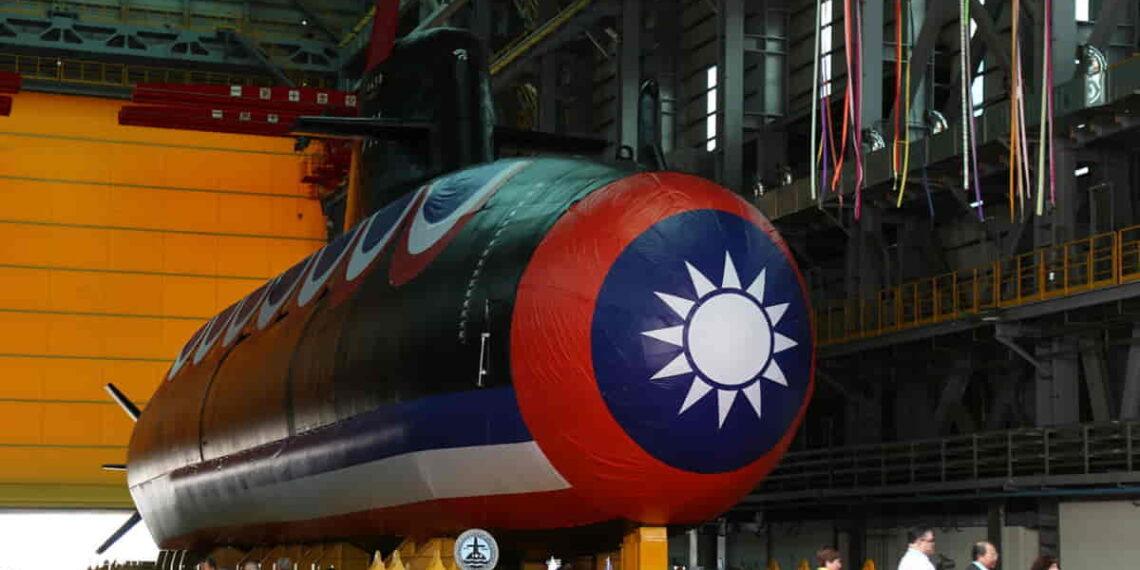Taiwan’s Divided Politics Undermine Defense Efforts as Trump Returns to Power
Taiwan’s defense spending has come under scrutiny following a vote in its parliament to freeze billions of dollars in military budget, just hours after Donald Trump’s return to the White House. The decision has raised concerns about the island’s commitment to strengthening its defenses and could create tensions with the U.S., which has long been Taiwan’s main ally and weapons supplier.
Taiwan, a democratic island and semiconductor powerhouse, has long been a target of China, which claims the island as part of its territory despite never having controlled it. China has vowed to reunify Taiwan with the mainland, by force if necessary. Taiwan President Lai Ching-te faces domestic challenges as his opposition-led parliament freezes defense spending despite growing military threats from China.
Political Gridlock and Growing Concerns Over U.S. Support
Lai, who is struggling to pass key legislation in a fragmented parliament, expressed concern over the impact this freeze could have on Taiwan’s defense capabilities. He warned that if Taiwan’s defense reforms and capabilities were hindered, the international community could doubt the island’s resolve to defend itself. The budget freeze includes vital programs such as locally designed submarines and an indigenous drone initiative.
The vote’s timing is crucial, with Chinese diplomatic and military pressure on Taiwan increasing. Lai’s administration condemned the freeze as “suicidal,” with Defense Minister Wellington Koo calling it a “wrong signal” to the United States. The vote highlights Taiwan’s internal political divisions, which could undermine the country’s defense efforts and strain its relationship with Washington, especially with the return of Trump to power.
Trump’s ‘America First’ Policy Creates Uncertainty for Taiwan
Trump’s return to the presidency has created anxiety in Taiwan over the U.S.’s commitment to the island, particularly in light of his “America First” approach. While the U.S. has long maintained a close security partnership with Taiwan through the Taiwan Relations Act, Washington has remained vague about how it would respond to a Chinese invasion of the island.
In previous years, U.S. intelligence assessments suggested that Chinese leader Xi Jinping had ordered his military to prepare for a potential invasion by 2027. While this timeline remains speculative, the geopolitical tension surrounding Taiwan continues to rise.
Trump’s stance on Taiwan has been less supportive than that of his predecessor, Joe Biden. The former president has criticized Taiwan, making unfounded claims about Taiwan’s role in the semiconductor industry and urging the island to increase its defense spending to 10% of its GDP — an unrealistic demand, according to analysts, given Taiwan’s existing backlog of over $20 billion in undelivered U.S. military equipment.
Political Instability and Its Impact on Taiwan’s Global Image
Concerns about Taiwan’s political instability have echoed among residents, some of whom worry about the impact of domestic bickering on international perceptions. “Taiwan’s legislature needs to avoid embarrassing itself and losing face in the eyes of foreign countries,” said Wang Cheng-yi, a student at National Taiwan University. Others, like Ms. Hsu, a 75-year-old Taipei resident, emphasize the need for Taiwan to balance relations with both the U.S. and China, given the island’s small size and delicate position on the global stage.
Military Readiness and Concerns Over Taiwan’s Defense Strategy
Despite Taiwan’s heavy armament from the U.S., its military remains significantly outmatched by China, which boasts the world’s largest standing army and spends far more on defense. Taiwan’s progress in transitioning to asymmetric warfare — focusing on smaller, more discreet weapons like drones and portable missiles — has been slow, raising concerns about the island’s overall readiness.
Taiwan also faces challenges in maintaining its critical infrastructure. Recently, undersea cables connecting Taiwan to the Matsu Islands were damaged due to natural wear and tear, further highlighting vulnerabilities that could be exploited by Beijing. Budget cuts across various sectors, including healthcare and foreign affairs, threaten to undermine efforts to address these issues.
Opposition Defends Budget Freeze, Advocates for Caution
Alexander Huang, a member of the opposition Kuomintang party, defended the freeze, questioning the practicality of heavily investing in Taiwan’s indigenous submarine program before completing initial sea trials. However, some experts, like Wei-Ting Yen from Academia Sinica, argue that Taiwan’s domestic political discord has hindered the island’s ability to present a united front to the U.S., especially in light of growing aggression from China.
Yen emphasized the need for Taiwan to increase its defense budget and work towards strengthening its military capabilities to deter any potential Chinese action. He warned that Taiwan’s internal divisions sent the wrong message to Washington, signaling a lack of commitment to its own defense.
Taiwan’s Semiconductor Industry as a Deterrent
While Taiwan’s military readiness remains a key concern, many locals believe that the island’s semiconductor industry serves as a powerful deterrent against Chinese aggression. Yeh Hsin-wei, a student in Taipei, argued that Taiwan’s dominance in semiconductor production — which powers many global technologies, including AI systems — makes it a valuable asset that China cannot afford to risk.
“The world needs our chips, so I think China wouldn’t risk a war,” said Yeh. “We need to prepare, but perhaps not worry too much.”
In the face of growing political divisions and security threats, Taiwan’s ability to navigate its relationship with both the U.S. and China remains crucial for its future. However, internal political unity and a clear commitment to defense reforms will be essential in securing continued international support and ensuring the island’s long-term security.
This article was rewritten by JournosNews.com based on verified reporting from trusted sources. The content has been independently reviewed, fact-checked, and edited for accuracy, neutrality, tone, and global readability in accordance with Google News and AdSense standards.
All opinions, quotes, or statements from contributors, experts, or sourced organizations do not necessarily reflect the views of JournosNews.com. JournosNews.com maintains full editorial independence from any external funders, sponsors, or organizations.
Stay informed with JournosNews.com — your trusted source for verified global reporting and in-depth analysis. Follow us on Google News, BlueSky, and X for real-time updates.














